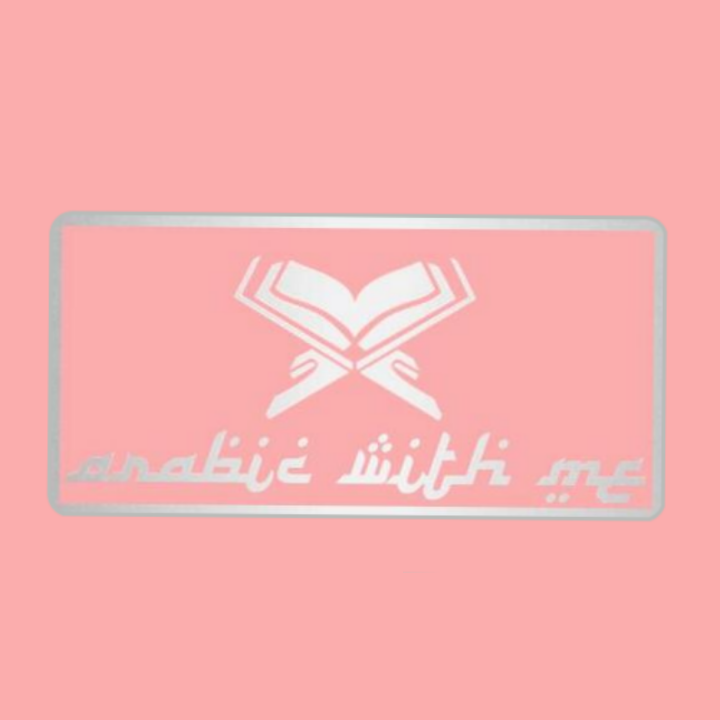Lesson 5 - Masculine & Feminine (Grammatical gender)
- Arabic With Me

- Jan 11, 2023
- 3 min read
In Arabic, all nouns fall into one of two gramamtical genders:
Masculine (mudhakkar): مُذَكِّر or
Feminine (mu’annath): مُئنِّث.
There is no neuter.
There are, however, a few nouns which may be considered either masculine or feminine.
A. Masculine Form:
All nouns are considered masculine unless they have a feminine endings (ة) [taa’ marboota or round/tied taa] or (ى) [alif maqsoora] or (اء) [alif hamza]). There are very few exceptions to this.
B. Feminine Form:
(1) The most common feminine form is the one ending in ة) الْتَاْءُ الْمَرْبُوْطَةُ), (at-taa’ al-marboota or round/tied taa) which is the usual feminine ending e.g. سيَّارَةٌ (sayyarah-tun) meaning “a car”, طَالِبَةٌ (taalibah-tun) – “A (female) student ”
Important: The ة) الْتَاْءُ الْمَرْبُوْطَةُ), (at-taa’ al-marboota or round/tied taa) is added to masculine nouns and adjectives to make them feminine. [Note: The last letter before the (ة) takes a fathah.] Note: If there are Nouns ending in ة) الْتَاْءُ الْمَرْبُوْطَةُ), (at-taa’ al-marboota or round/tied taa) but clearly indicates a male, then it is masculine and not feminine.
Example: حَمْزَةُ (Hamzah), أسامَةُ (Usaamah), مُعاوِيَةُ (Mu’aawiyah), طَلْحَةُ (Talhah)
The less common feminine forms are:
(2) (alif maqsoorah) – All nouns with an alif maqsoorah are also feminine e.g. مُستَشفى(Mustashfa) meaning hospital.
Note that there aren’t two dots under the “Yaa”. It is a classical beginner error to pronounce this word as “Mustashfi” rather than “Mustashfa” so watch for the two dots!
(3) (alif hamzah) – This is also known as الف ممدودة (Alif Mamdooda). All nouns with an Alif Mamdooda are also feminine e.g. نِساءٌ (nisaa-un) – “women” or أَذْكِياءُ (Adhkiya’u) meaning those men who are intelligent.
However, in determining the gender of a word of such forms, it is advisable to consult the dictionary because of the frequency of exceptions. [Note: As of now, we are not dealing into these in much detail]
There are certain words which are considered feminine by convention. Such words, generally, fall in the following categories:
a. Geographical names, i.e. towns, villages, countries, etc. [Examples: مَكَّةُ (Makkah), جِدَّةُ (Jeddah)]
b. Parts of the human body that occur in pairs [Examples: يَدٌ (yad-un) “hand” and عَيْن (a’yn) “eye”.] [Note: All body parts which are singular (nose, head, face) are Masculine in Arabic]
c. Certain nouns which are feminine by convention
[Examples: شَمْسٌ (shams-un) “sun”, نَفْسٌ (nafs-un) “soul”, اَرْضٌ (ard-un) “earth”, نارٌ (naar-un) “fire”]
In this category, there are a few words which may be either feminine or masculine such as طَريق (Tareeq) “road”,سِكّين (sikkeen) “knife”, or سوقٌ (sooq-un) “market”.
d. Letters of the Arabic alphabet [Examples: ا (alif-un), ب (baa-un)]
e) Proper Names in Arabic
Proper names in Arabic are definite even though they generally DO NOT have ال added to the beginning.
Many male proper names which are derived from nouns or adjectives have ( ٌ) (tanween) as their final vowel even though they are DEFINITE.
Example: حَامِدٌ is just “Hamid”, and not “a Hamid”
Feminine nouns DO NOT carry a “tanween” as their final vowel as some of the masculine names do.
Example: زَيْنَبُ (Zainab-u) ,فاطِمَةُ (Faatimah-tu) , عائِشَةُ(Aaishah-tu)
So, Faatimah-tun is Incorrect Zainab-un is Incorrect because of the tanween.
Note: Male names have tanween and hence have (-un) sound in the end.
Female names don’t take tanween and hence only have the (-u) sound in the end.
f) Mamnoo’ Min As-Sarf مَمْنُوْعٌ مِنَ الصَّرْفِ
(Mamnoo’ Min As-Sarf) is a term that is used for a particular group of nouns which do not accept tanween and when they are in a state of مَجْرُوْرٌ (majroor) i.e. genitive, they take Fathah and NOT kasra.
Remember: The Mamnoo’ Min As-Sarf DO NOT like two things, and they are nunation/tanween and the kasra.
As of now just remember that Male names ending in ة) الْتَاْءُ الْمَرْبُوْطَةُ), (at-taa’ al-marboota or round/tied taa) and all female proper names, are Mamnoo’ Min As-Sarf.
Example:
If you wanted to say “This book is from Muhammad,” (This is Muhammad's book) you would say:
هاذا الْكِتابُ لِمُحَمَّدٍ
if you wanted to say “This book is from Talhah,” (This is Talhah's book) you’d say:
هاذا الْكِتابُ لِطَلْحَةَ
(haadha l-kitaabu li Talha-ta).
Li is a preposition; Talha-ta is in the genitive case; but since it is mamnoo’ min as-sarf, genitive case is shown with fatha instead of kasra.
It is NOT “Talhat-i” or “Talhat-in” because Males name ending in taa’ marboota, are mamnoo’ min as-sarf and hence cannot take a kasra nor a tanween.
Similarly, if you wanted to say “this book is from Zaynab,” you would say:
هاذا الْكِتابُ لِزَيْنَبَ
(notice it’s Zaynaba, not Zaynabi). Again, since Zaynab is a feminine word, hence it is mamnoo min as-sarf.
Example:
أَ فاطِمَةُ مِن مَكَّةَ ؟
(A Faatima-tu min makkata?) – Is Faatimah from Makkah ?
Note: This section is just an introduction to this topic of Mamnoo’ Min As-Sarf. Insha’Allah in the near future, we’ll discuss what classes or categories of words are mamnoo’ min as-sarf.
Examples:
مـِنْ أَيْنَ عائِشَةُ ؟
(Min ayna Aaishatu?) – Where is Aaishah from?
عائِشَةُ طَالِبَةٌ مـِنْ مَدرَسَةٍ فِي مَكَّةَ
(Aaishatu taalibaatun min madrasa-tin fee Makkata) – Aaisha is a student from a school in Makkah.




Comments